Key takeaways:
- Supporting small sustainable brands enhances consumer awareness and promotes ethical practices in the fashion industry.
- Sustainability involves reducing environmental impact through innovative production methods, like using recycled materials.
- Identifying ethical brands includes checking for certifications, understanding their mission, and engaging on social media for transparency.
- Personal experiences with sustainable clothing foster emotional connections and highlight the importance of conscious consumerism.
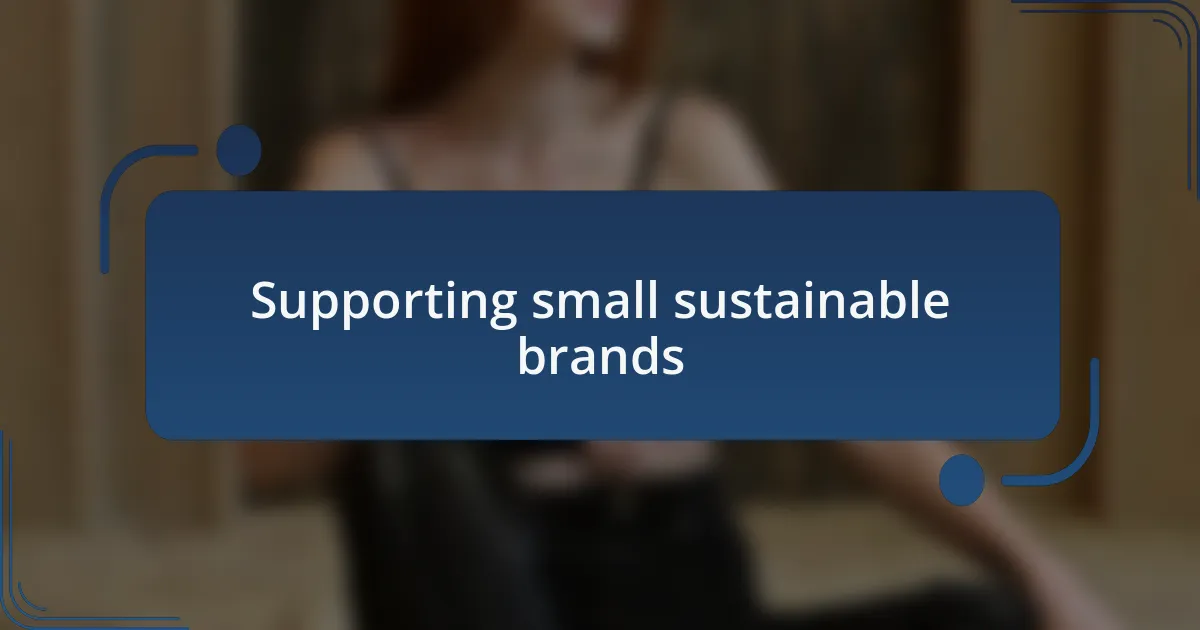
Supporting small sustainable brands
Supporting small sustainable brands has become a rewarding journey for me. I remember a time when I stumbled upon a local denim brand at a craft fair. Their jeans were not only stylish but made from organic materials and produced ethically. It struck a chord with me, prompting me to reflect: how do our clothing choices affect the planet?
I often think about the stories behind the products I buy. Small sustainable brands usually have strong narratives about their impact on communities and the environment. For instance, I once bought a pair of jeans from a brand that trained local artisans, allowing them to earn a fair wage while preserving traditional crafting techniques. Isn’t it incredible how our support can uplift not just the product, but also the people behind it?
When I choose to support these brands, I feel like I’m participating in a movement toward conscious consumerism. Each purchase is a vote for sustainability, a step toward reducing waste in the fashion industry. Have you ever considered how just one item can spark a change? Trust me, embracing this mindset has not only transformed my shopping habits but enriched my connection to the clothing I wear.
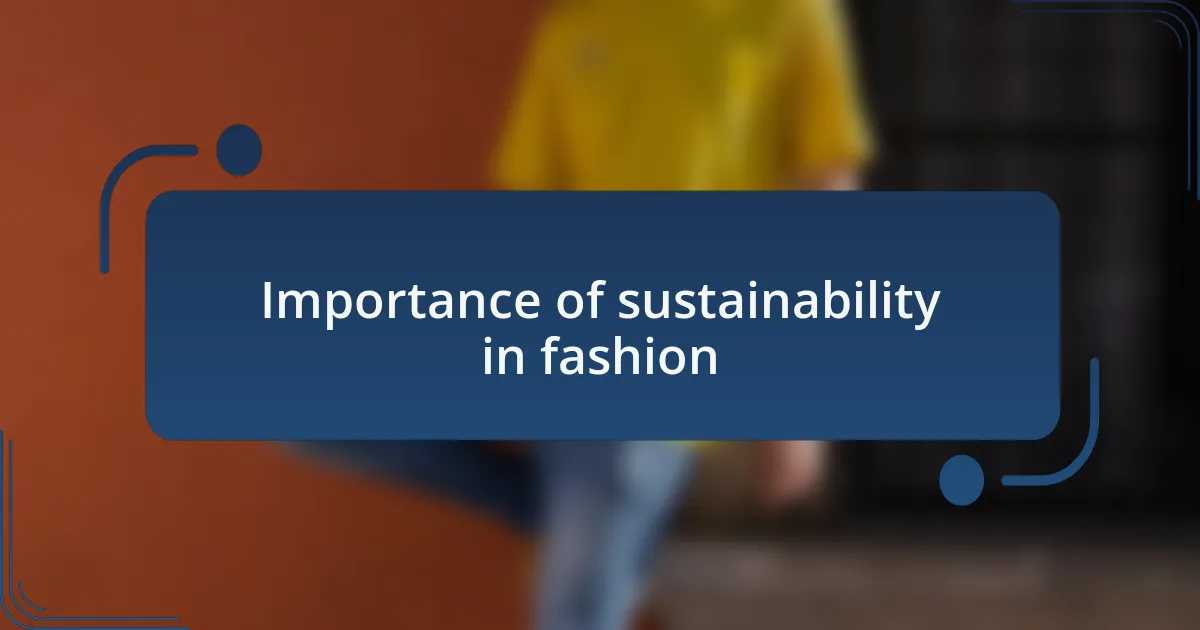
Importance of sustainability in fashion
Sustainability in fashion is essential because the industry has a significant environmental footprint. When I learned about the staggering amounts of water and chemicals used in conventional denim production, it hit me hard. It made me wonder: what kind of legacy are we leaving behind for future generations? Supporting sustainable brands feels like a proactive decision to minimize this impact.
The emotional connection to our clothing also shifts when we think about sustainability. I recall attending a workshop hosted by a small brand focused on eco-friendly practices. Listening to the founder share heartfelt stories about their mission to reduce waste made me see denim in a whole new light. It’s about choosing items that reflect values of care and responsibility, isn’t it?
Moreover, sustainability pushes fashion toward innovation. I remember being fascinated by a denim company that uses recycled plastic bottles to create their jeans. This not only helps reduce waste but also showcases the incredible creativity within the sustainable sector. Isn’t it inspiring to think that each purchase could support groundbreaking solutions?
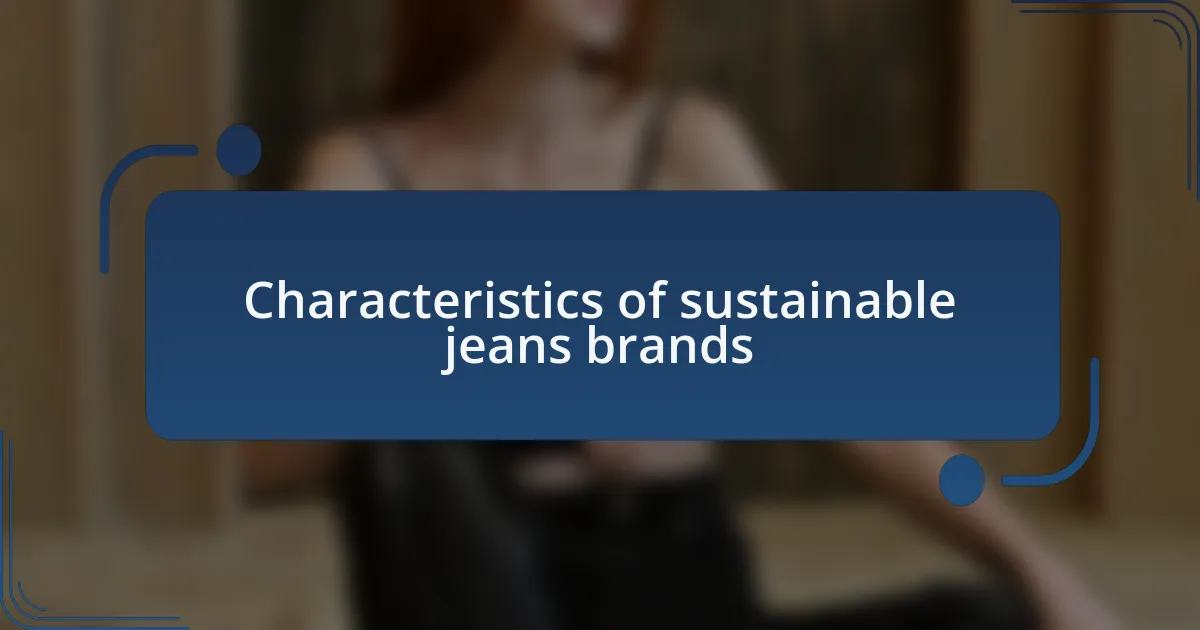
Characteristics of sustainable jeans brands
Sustainable jeans brands share a commitment to ethical sourcing and production practices. I remember my first encounter with a brand that uses organic cotton; it felt rewarding to know the fibers were grown without harmful pesticides. Can you imagine wearing something that’s not only stylish but also gentle on the Earth?
Another hallmark of these brands is transparency in their supply chain. When I researched a small denim company that openly shared their manufacturing processes, it struck me how rare that level of honesty is in the fashion world. How refreshing it is to support a brand that’s proud of where and how their products are made!
Finally, sustainable jeans often incorporate innovative materials and techniques to reduce their environmental impact. I stumbled upon a brand that upcycles old denim into new styles, which really made me think about the value of repurposing. Have you considered how your wardrobe choices could contribute to a more circular fashion economy?
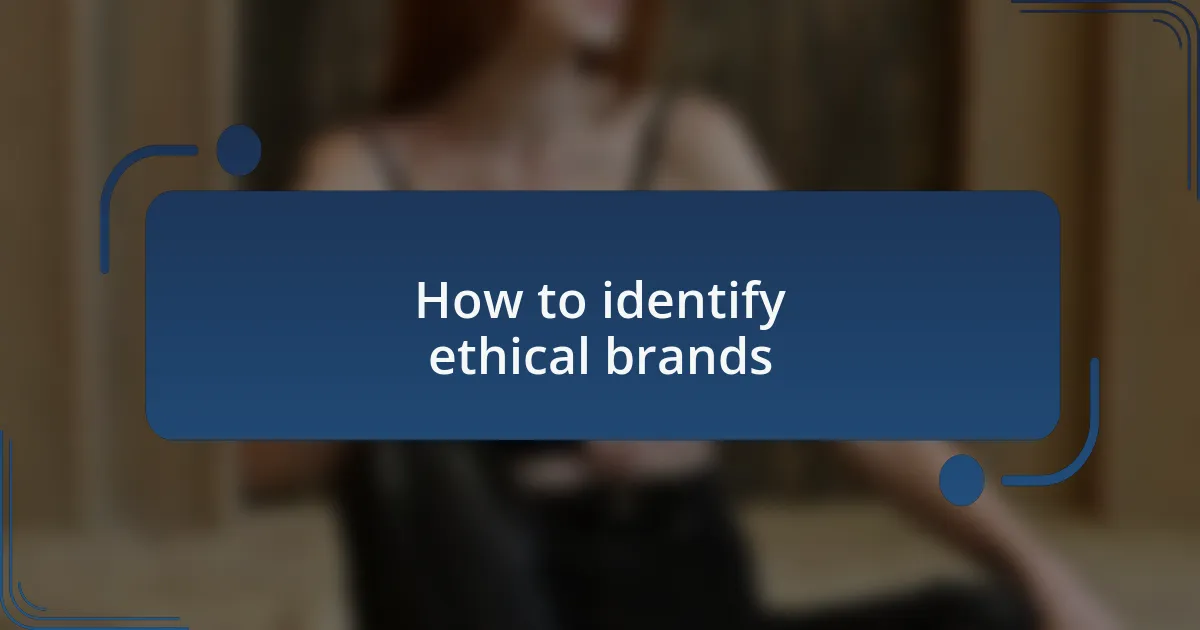
How to identify ethical brands
Identifying ethical brands involves looking for clear indicators of their responsibility toward people and the planet. For example, I often check labels for certifications like GOTS (Global Organic Textile Standard) or Fair Trade. Seeing those logos instantly gives me peace of mind that the brand is held to high environmental and social standards.
It can also be helpful to explore a brand’s storytelling and mission. A few months back, I visited a brand’s website that highlighted their commitment to fair wages for workers, and it really resonated with me. It’s not just about selling jeans; it’s about the lives and communities intertwined with their products. Do their stories inspire you to make more thoughtful purchases?
Finally, engaging with a brand on social media can offer insights into their practices. I remember asking a brand about their water conservation efforts and was pleasantly surprised by their detailed response. When a brand takes the time to connect with customers and provide transparent answers, it often reflects their genuine commitment to sustainable practices.
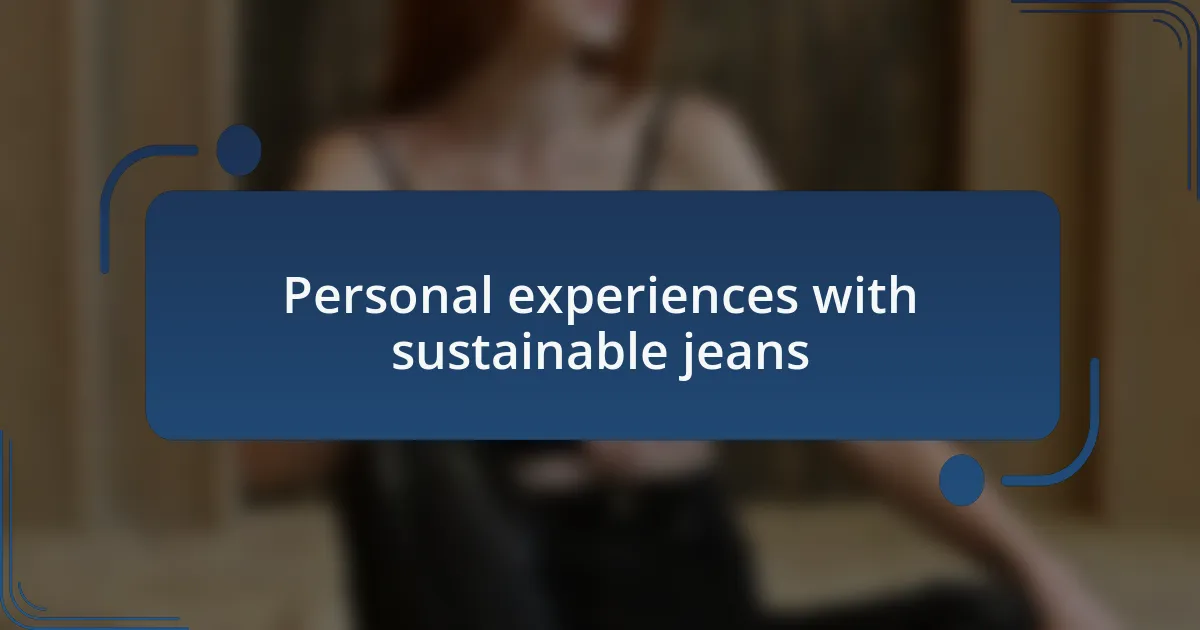
Personal experiences with sustainable jeans
I still vividly remember the first time I slipped into a pair of sustainable jeans. The soft organic cotton felt different against my skin, almost like a gentle hug, and I couldn’t help but smile knowing I was supporting a brand that prioritized responsible production methods. It felt like more than just a purchase; it was a small act of rebellion against fast fashion.
On another occasion, while I was exploring a local thrift store, I found a pair of second-hand jeans from a small sustainable brand. They fit me perfectly and the wear and tear told a story. Each frayed edge felt like a reminder of the journey these jeans had lived through, making me reflect: how many stories do our clothes carry? I felt a connection not just to the fabric, but to a larger community committed to sustainability.
What truly struck me was attending a pop-up event for a sustainable denim label, where I learned about their water-saving techniques. I listened as the founder shared her journey of making ethical choices in production. By the end of the evening, I walked away not just with new jeans but a renewed sense of purpose. How can we not support brands that are working tirelessly to protect our planet?